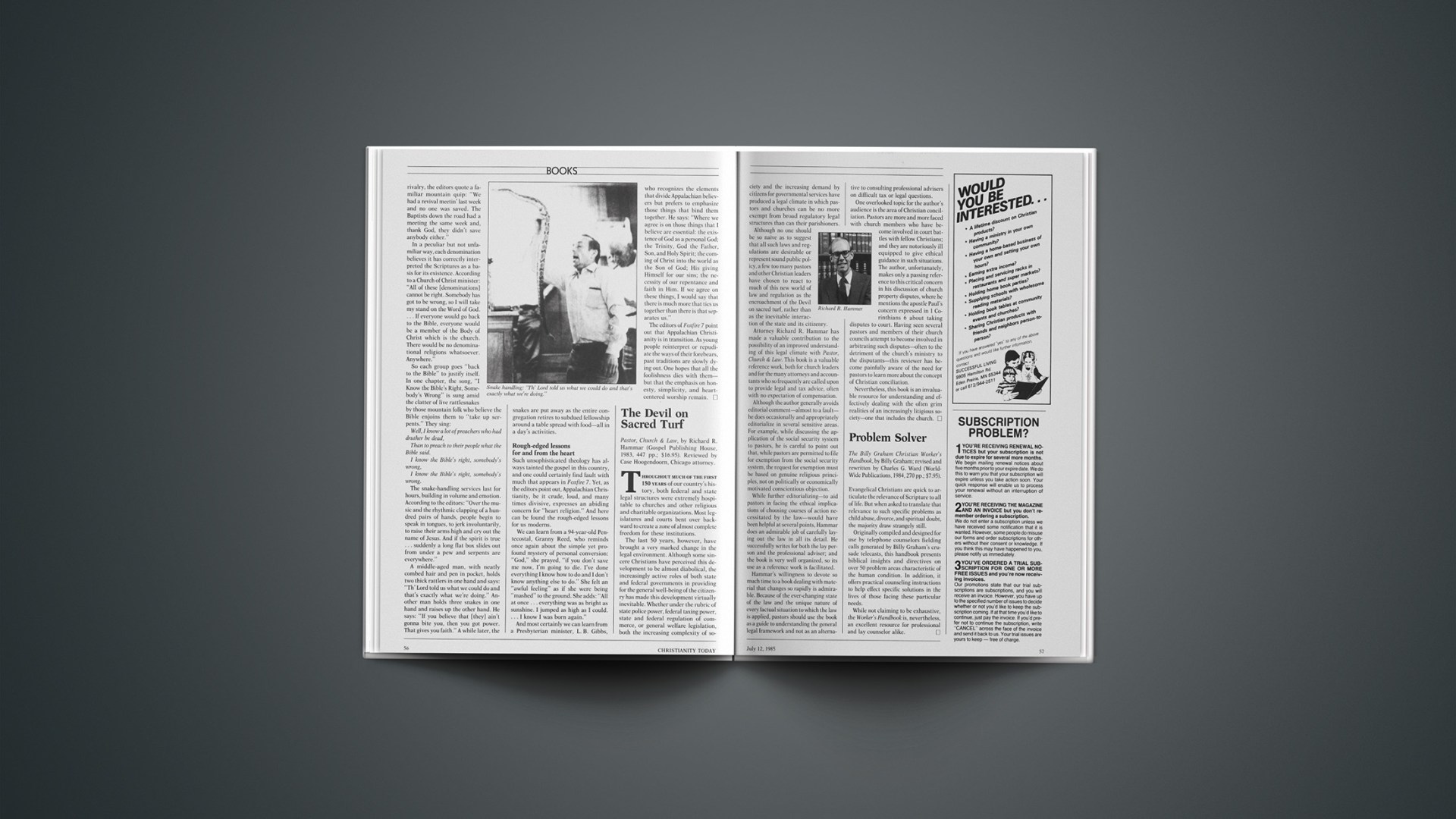Pastor, Church & Law, by Richard R. Hammar (Gospel Publishing House, 1983, 447 pp.; $16.95). Reviewed by Case Hoogendoorn, Chicago attorney.
Throughout much of the first 150 years of our country’s history, both federal and state legal structures were extremely hospitable to churches and other religious and charitable organizations. Most legislatures and courts bent over backward to create a zone of almost complete freedom for these institutions.
The last 50 years, however, have brought a very marked change in the legal environment. Although some sincere Christians have perceived this development to be almost diabolical, the increasingly active roles of both state and federal governments in providing for the general well-being of the citizenry has made this development virtually inevitable. Whether under the rubric of state police power, federal taxing power, state and federal regulation of commerce, or general welfare legislation, both the increasing complexity of society and the increasing demand by citizens for governmental services have produced a legal climate in which pastors and churches can be no more exempt from broad regulatory legal structures than can their parishioners.
Although no one should be so naïve as to suggest that all such laws and regulations are desirable or represent sound public policy, a few too many pastors and other Christian leaders have chosen to react to much of this new world of law and regulation as the encroachment of the Devil on sacred turf, rather than as the inevitable interaction of the state and its citizenry.
Attorney Richard R. Hammar has made a valuable contribution to the possibility of an improved understanding of this legal climate with Pastor, Church & Law. This book is a valuable reference work, both for church leaders and for the many attorneys and accountants who so frequently are called upon to provide legal and tax advice, often with no expectation of compensation.
Although the author generally avoids editorial comment—almost to a fault—he does occasionally and appropriately editorialize in several sensitive areas. For example, while discussing the application of the social security system to pastors, he is careful to point out that, while pastors are permitted to file for exemption from the social security system, the request for exemption must be based on genuine religious principles, not on politically or economically motivated conscientious objection.
While further editorializing—to aid pastors in facing the ethical implications of choosing courses of action necessitated by the law—would have been helpful at several points, Hammar does an admirable job of carefully laying out the law in all its detail. He successfully writes for both the lay person and the professional adviser; and the book is very well organized, so its use as a reference work is facilitated.
Hammar’s willingness to devote so much time to a book dealing with material that changes so rapidly is admirable. Because of the ever-changing state of the law and the unique nature of every factual situation to which the law is applied, pastors should use the book as a guide to understanding the general legal framework and not as an alternative to consulting professional advisers on difficult tax or legal questions.
One overlooked topic for the author’s audience is the area of Christian conciliation. Pastors are more and more faced with church members who have become involved in court battles with fellow Christians; and they are notoriously ill equipped to give ethical guidance in such situations. The author, unfortunately, makes only a passing reference to this critical concern in his discussion of church property disputes, where he mentions the apostle Paul’s concern expressed in 1 Corinthians 6 about taking disputes to court. Having seen several pastors and members of their church councils attempt to become involved in arbitrating such disputes—often to the detriment of the church’s ministry to the disputants—this reviewer has become painfully aware of the need for pastors to learn more about the concept of Christian conciliation.
Nevertheless, this book is an invaluable resource for understanding and effectively dealing with the often grim realities of an increasingly litigious society—one that includes the church.










